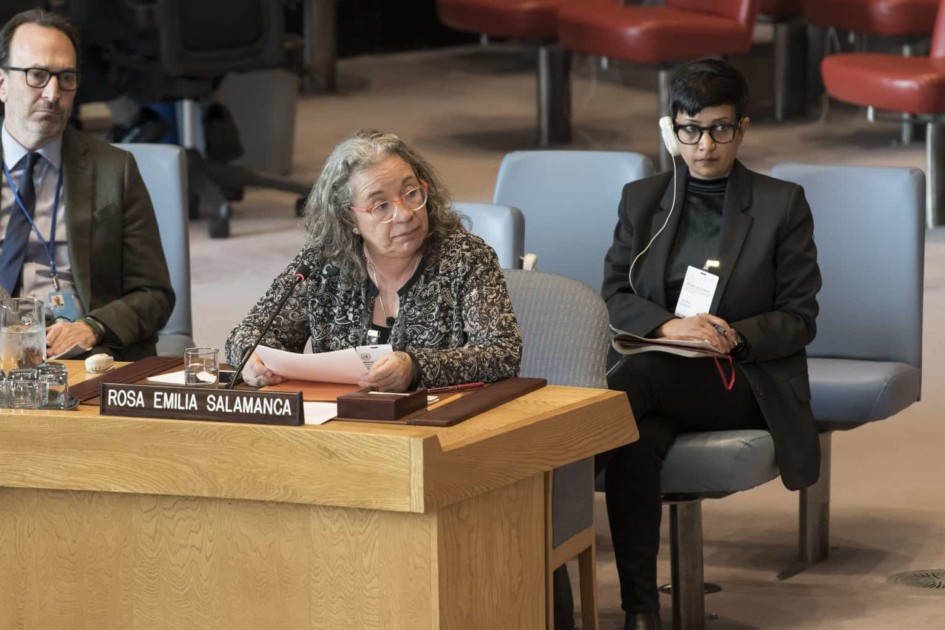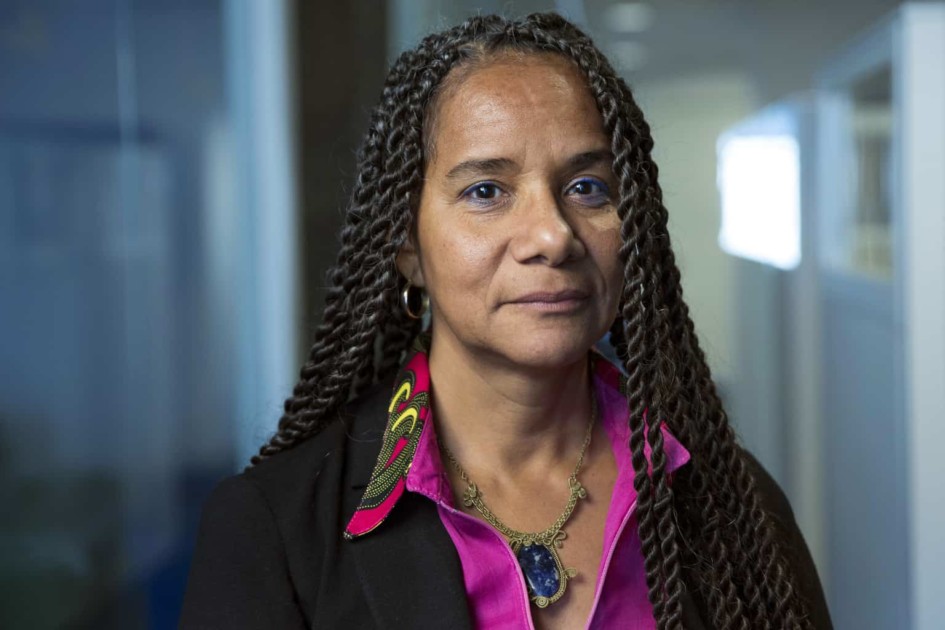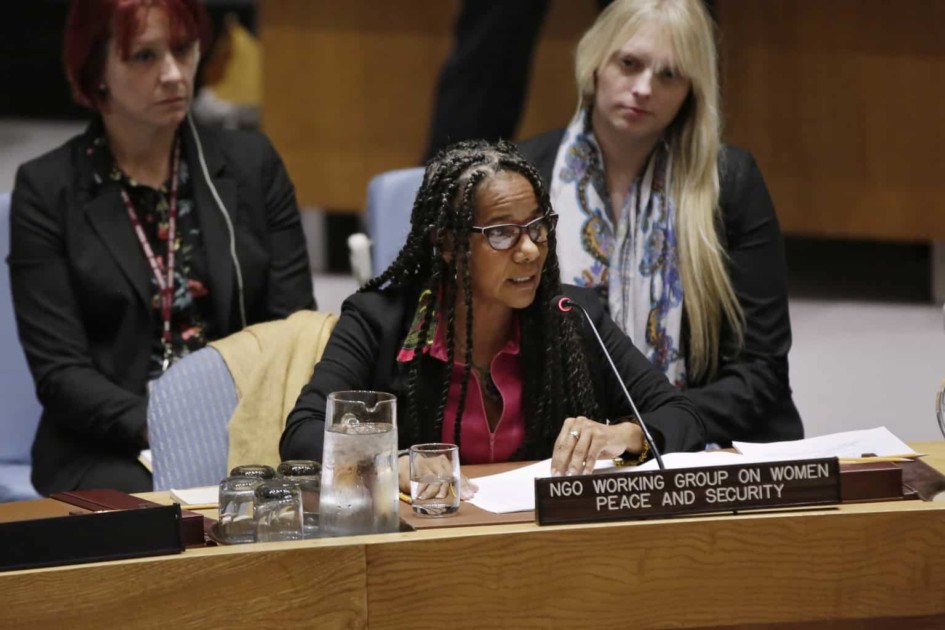Colombia
Colombia
Current and Past Recommendations to the UN Security Council (Monthly Action Points)
When establishing an observer mission, in the context of a new peace agreement, the Council must ensure that gender is a crosscutting issue in the operation of the mission and the tripartite monitoring and verification mechanism. Throughout the work of the mission, there should also be ongoing and consistent consultation with women’s civil society organizations, including AfroColombian, indigenous and rural women’s organizations. There should be an effort to support and strengthen all previous efforts by the two parties to foster an inclusive peace process, and the mission should continue to work closely with the Gender SubCommittee and the group of gender experts. The Council should consider the following:
- The mission should encourage the full realization of the gender provisions of the peace accords, established by the gender sub-commission, including women’s meaningful participation in rural development, eradication of illicit drugs and political processes, and the rights of victims, including women and girls, to truth, justice, reparation and guarantees of nonrepetition.
- The political mission must specifically support security sector reform and, further, should ensure justice institutions are accessible and accountable to survivors of violence, including sexual and gender-based violence (SGBV).
- In consultation with women, indigenous and Afro-Colombian groups at national, regional, and local levels, the mission should establish readily accessible protection and reporting mechanisms to ensure there is transparency and accountability in the implementation of the ceasefire and final peace agreement, as well as opportunities to report instances of noncompliance, particularly in the context of demobilization.
- In its support for disarmament, demobilization and reintegration, attention must be paid to tailoring assistance to the particular needs of female ex-combatants, as well as women and girls from communities where former fighters resettle.
- In reconciliation and peacebuilding efforts, the needs and rights of women and girls must be at the forefront of the design and implementation of early-warning and ceasefire monitoring mechanisms (SCR 2261 (2016), OP 3).
- Monitoring teams would also have to monitor, investigate and report on the human rights situation, and consistently consult with women human rights defenders in the assessment of incidents and the preparation of reports.
- Ensure the mission meets the 20% baseline commitment for women’s participation in all its functions and positions by prioritizing the deployment of female observers and recruitment of women as civilian staff and UN Volunteers.
When establishing an observer mission, in the context of a new peace agreement, the Council must ensure that gender is a crosscutting issue in the operation of the mission and the tripartite monitoring and verification mechanism. Throughout the work of the mission, there should also be ongoing and consistent consultation with women’s civil society organizations, including AfroColombian, indigenous and rural women’s organizations. There should be an effort to support and strengthen all previous efforts by the two parties to foster an inclusive peace process, and the mission should continue to work closely with the Gender SubCommittee and the group of gender experts. The Council should consider the following:
- The mission should encourage the full realization of the gender provisions of the peace accords, established by the gender sub-commission, including women’s meaningful participation in rural development, eradication of illicit drugs and political processes, and the rights of victims, including women and girls, to truth, justice, reparation and guarantees of nonrepetition.
- The political mission must specifically support security sector reform and, further, should ensure justice institutions are accessible and accountable to survivors of violence, including sexual and gender-based violence (SGBV).
- In consultation with women, indigenous and Afro-Colombian groups at national, regional, and local levels, the mission should establish readily accessible protection and reporting mechanisms to ensure there is transparency and accountability in the implementation of the ceasefire and final peace agreement, as well as opportunities to report instances of noncompliance, particularly in the context of demobilization.
- In its support for disarmament, demobilization and reintegration, attention must be paid to tailoring assistance to the particular needs of female ex-combatants, as well as women and girls from communities where former fighters resettle.
- In reconciliation and peacebuilding efforts, the needs and rights of women and girls must be at the forefront of the design and implementation of early-warning and ceasefire monitoring mechanisms (SCR 2261 (2016), OP 3).
- Monitoring teams would also have to monitor, investigate and report on the human rights situation, and consistently consult with women human rights defenders in the assessment of incidents and the preparation of reports.
- Ensure the mission meets the 20% baseline commitment for women’s participation in all its functions and positions by prioritizing the deployment of female observers and recruitment of women as civilian staff and UN Volunteers.
Relevant Resources










